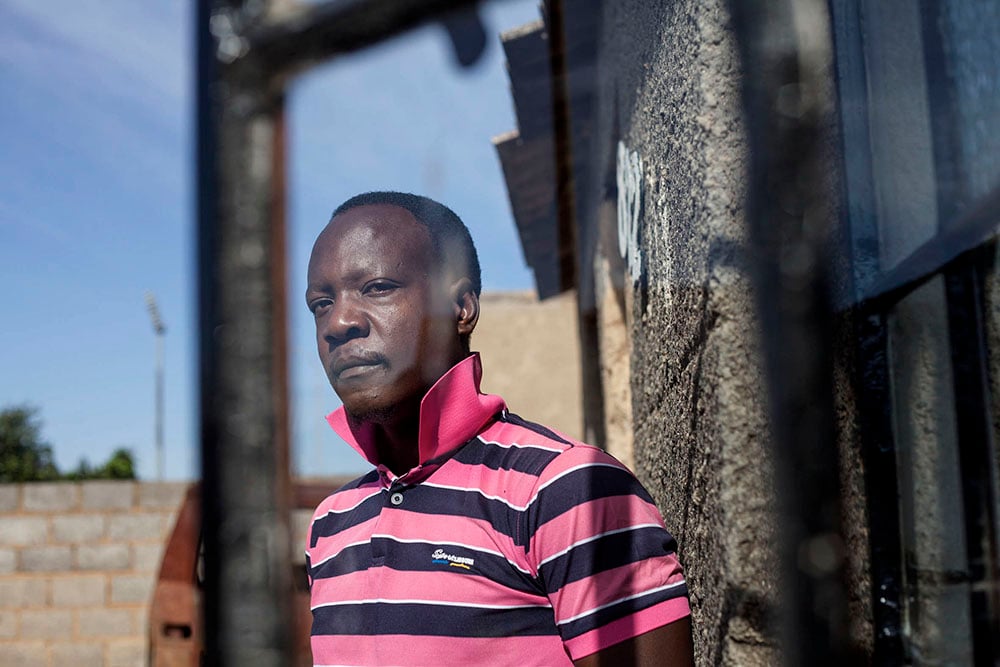Manchester United's Romelu Lukaku in action with Burnley's Ben Mee (Phil Noble/Reuters)
The Expanded Public Works Programme has created more than a million jobs but because these are temporary, workers complain they are left barely better off than they were before.
They are also vulnerable to exploitation by unscrupulous employers who pay a whisker above the minimum wage, some allege.
“The people who make money are the ones who are in control, the ones with the contracts. At the end of the day, ordinary people only end up like their life doesn’t matter,” said 32-year-old Xolo Msolo, who worked on a construction site as part of the programme.
The public works programme is at the forefront of the ANC’s campaign to create six million work opportunities in South Africa in five years. During last year’s State of the Nation address, President Jacob Zuma said the government was well on track to create these jobs.
The expanded public works programme jobs are short-term and not permanent – hence the term “work opportunities” as opposed to “job opportunities”.
For Msolo, the programme became a lifeline at a time when, earning low pay as an informal teacher, he found himself with little money to build a future – even though he loved what he was doing.
In his matric year, Msolo noticed many of his classmates were spending more time out of the classroom than in it. In an effort to help them understand the schoolwork they were missing, he began teaching them. Since then, he has had a passion for teaching and hoped that this year he would finally be able to register to study at Unisa.
But even though he was able to put money aside from the R150 a day he earned on the construction site, it was a struggle.
“There are things that one would want to do with their life. I felt that there may be a chance to bring change in my life, but at the end of that stage I was just happy that I was surviving,” Msolo said, sitting outside his home in Dobsonville, Soweto.

Xolo Msolo of Soweto. (Oupa Nkosi, M&G)
Some of the public works jobs include a skills development and training component. Although Msolo expected to boost his skills, he said it never happened. On his expanded public works programme certificate, there is a blank space where his “skill learnt” should be listed.
Since his contract with the public works programme ended in December, Msolo has been unemployed, leaving him bitter towards those who he alleges “exploit” the system by paying low wages.
“People tend to be animals when it comes to contracts or when it comes to money. [The public works programme], for me, was meant to be good, but it sometimes doesn’t serve the interest of the people,” he said.
The public works department maintains it is merely the programme co-ordinator, and that the organisations that contract participants are bound to pay at least the minimum wage of R78.86 a day, said spokesperson Kgomotso Mathuloe.
This minimum wage was set by a ministerial determination on the expanded public works programme.
According to the department, the various sectors participating in the programme – be they in the arts, construction industry or social services – carry different levels of remuneration, with the average daily wage being R115.
Seipati Mazibuko (33) stands in her Dobsonville lounge, ironing bundles of clothing on a rickety ironing board. She started the new year unemployed after her contract with the public works programme came to an end in December, but her fledgling culinary business and the ironing she does on the side have become her saving grace.
“When the contract ended, I knew I had to find ways of making money. The little I got at [the public works programme] was not enough for me to save for when it ends, so I needed to make a plan,” Mazibuko said.
Before being employed as a cleaner as part of the programme, Mazibuko had been unemployed since 2005. She and others were initially contracted for just three months, but later had their contracts extended by another seven months.
“I was very excited to clean in the offices. It was an opportunity for me to learn other things like using a computer and how to file paperwork. I gained a lot of experience,” she said.
Although she knew her contract would eventually come to an end, Mazibuko was devastated when it did. She lives with her three children, her parents and her brother. Her public works salary, which was R150 a day, excluding overtime, went towards paying her children’s school fees and helping out with household expenses.
Using the social grant money she receives for her children, she started a small business selling kotas (quarter-loaf sandwiches), pork trotters and ice lollies from her home. From this, she makes about R150 a day, and she also does odd jobs such as washing and ironing laundry, for which she charges R200 a load.
Mazibuko wishes she could have been employed permanently and is still resentful that the contract ended. “If I was them [the public works department], I would make the contracts for a longer period so that those that are employed get more time to become financially secure,” she said.
Since April 2014 the programme has reportedly created 1.5?million work opportunities. The temporary nature of the work means that participants are contracted to work for a few months, to allow for rotation so that others can benefit.
In 2015 Statistics South Africa revealed that one in four South Africans are unemployed, with young people making up the largest portion of those without jobs.
The government has positioned the public works programme as a beacon of light amid South Africa’s jobs crisis. For participants like Mazibuko and Msolo, its positive attributes are tempered by the bitterness of realising that the contracts will eventually come to an end.